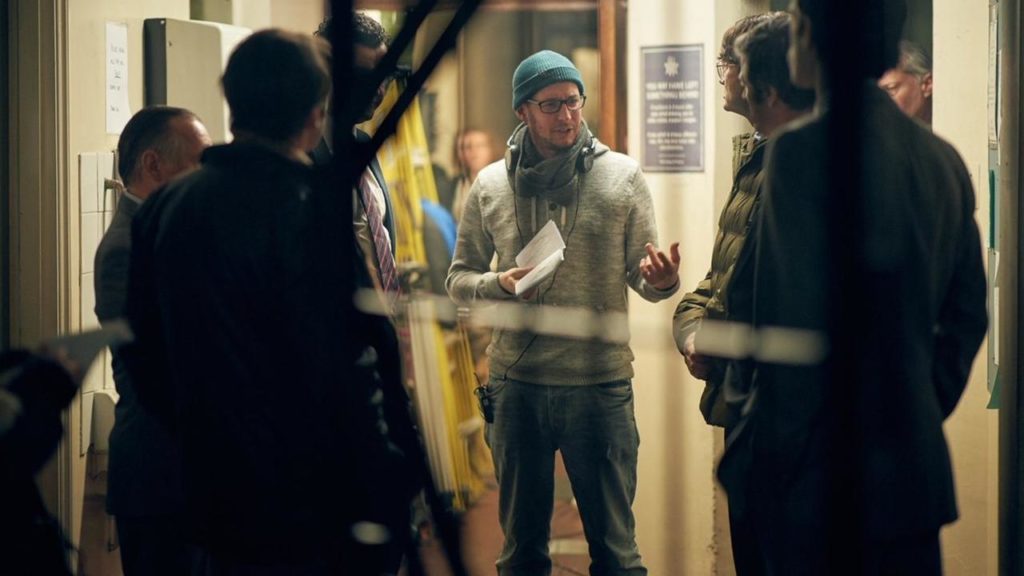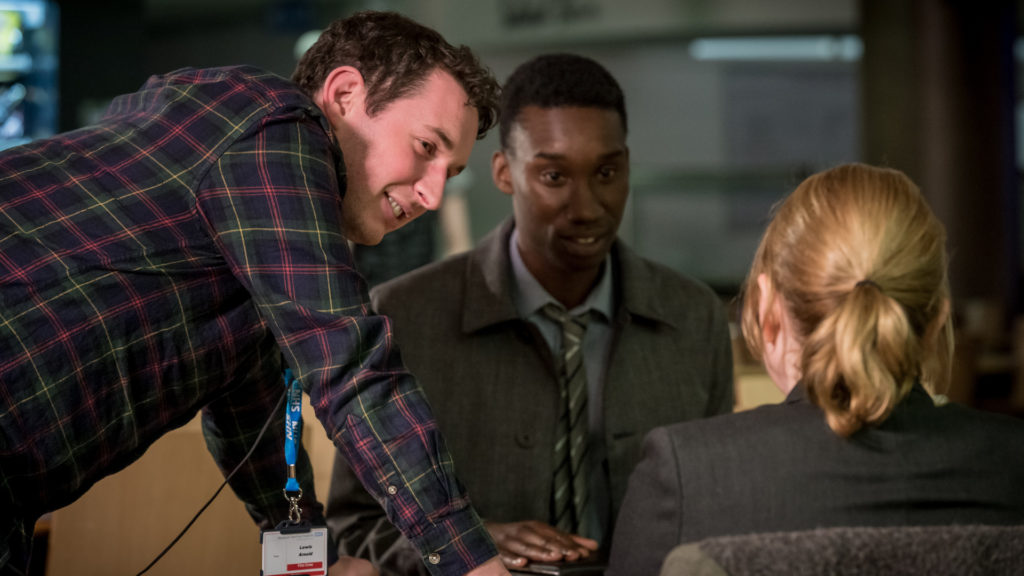In conversation with Lewis Arnold, acclaimed television director
Screen and Film School Birmingham were delighted to welcome acclaimed director Lewis Arnold recently for our first masterclass of the new school year.
Lewis has directed hit TV dramas such as Misfits, Humans, Des, Time and Broadchurch, working with internationally renowned actors, such as David Tennant and Sean Bean, and has produced award-winning projects. His advice to our students was invaluable and as you will discover below, he outlined some essential tips on how to get started in the industry. Here is our Q and A with Lewis:
Can you tell us how you got your started in the industry and how you came to direct so many hit TV shows?
“I wanted to be a writer-director for years. Nobody from my family came from film and they wanted me to get a ‘proper job’ as they put it. To them, it was an unobtainable dream. After I graduated from university, I visited the National Film and Television School but just couldn’t afford it. My short film Stained in 2009 was my application film that got me in.
Then I started working on Doctors as a runner. I found that deeply frustrating as I couldn’t make a pathway to what I wanted to do at the time. The reality is you simply have to work! But I was very impatient, as I knew I wanted to direct. I also worked for a small company directing corporate videos for no money. I had to make a decision on what I was going to do: you can either earn money and be a runner and climb the ladder and never get to be a director or make no money and work your way up the ladder in that way.
It was there that I made my short film Stained and used their facilities and resources to make things happen. I met a music video producer there who offered me £100 to first AD on one. Then I got a call to do another one which was £200 a day, which led to a massive Tiesto music video. Eventually, I was getting a lot of work as a first AD, with a lot of directors recommending me. I was then able to go to London and that sort of freelance work became my revenue.
When I graduated, I couldn’t get an agent for a year, but it was the connections I made on those early music videos that got me a break on Misfits. As a first AD, I kept to schedules, I always delivered. That helped get me over the line as a new director.”
What’s the best advice you were given in your early career?
“I did some work experience and found a mentor in Jeff Thompson, a writer based in Coventry. He made a short film called Brown Paper Bag, which won a BAFTA. He advised me that I could try to do it all or I could work on one craft and that really hit home. I knew I was a better director than I was a writer; I needed to start working with writers and not let my ego dictate my career. You have to recognise your weaknesses and work on your craft. The great thing now is I’m able to take an idea I’m developing to a writer. You still generate ideas, but you don’t own them in the same way, you share them. That’s really special! I like working in rooms with other creatives. As a director, you’re a storyteller; you’re able to tell more stories and build more worlds. I use my writing skills in the edit and during the production process, interrogating the script.”
What attracts you to the projects you decide to work on?
“My favourite theme is social commentary. Getting a bit older, you care more about the world. Misfits had every genre in it. I like comedy, sci-fi, spectacle, but drama should be the basis of every kind of script. If the characters have an interesting take on the social landscape, I’m interested in it. When it came to Des (a drama on serial killer Dennis Skinner) I was completely won over by the scripts. It feels very contemporary in terms of the message, despite it being set in the 70s.”
What’s your process as a director when you start a new project?
“I work with the cinematographer, discussing our influences back and forth, and then building up a lot of images for inspiration. You have to be overprepared to throw things away. I will storyboard, do a lot of thumbnails and sketches, and plan every scene. I will overprepare. Then I have the confidence to walk on set to do something else if needed. Because I know the story inside out, and I have a sounding board of work to know what I need to figure out, and how far I can stray from that.”
What’s the production process like for you?
“Filming is so all-consuming: you barely have enough time for your family. An average is five pages a day (about 5 minutes of material in the finished project). But I love the edit as it’s the time where you have to stay objective and challenge the material.”
How do you approach directing different performers?
“In terms of an actor’s stature, you treat them the same. They all have their own insecurities and personalities. David Tenant for example, is very well prepared and all you need to talk to him about is to discuss at which point of the series we are at. Then Sean Bean, he’s more instinctive and ‘in the moment’ and may need a discussion about what worked or what didn’t. David was very different on Des to how he was he was Broadchurch. He was more confident on that, whereas in Des he played a real person for the first time, so I gave him more space to prepare. Each actor just needs to know that you know the story, and that you know your job and the script.”
Any last piece bits of advice?
“With all of the technology that is available now, anyone can make a short film. Your calling card now, because everyone has a short film, is you need to make a low budget feature. There are no platforms or entrance to the industry by creating something the next level up. There are less schemes to get your break on TV.
For extra tips and advice, I also wrote a 400-page book called Directors Now, which is free to browse and download. I asked 105 different directors the same five questions. It has some of the best and most exciting filmmakers in there from animation, documentary, drama and film. It helps answer how you can transfer your passion into a career.”
A huge thank you from all of us at Screen and Film School Birmingham to Lewis for taking the time out of his busy schedule to talk with our students!
You can download Directors Now here: Lewis Arnold – Directors Now
Are you interested in being a part of the new legacy at Screen and Film School Birmingham?
Sign up to one of our Open Days:
Find out more information on our courses by clicking below:




